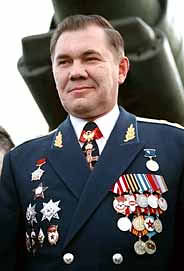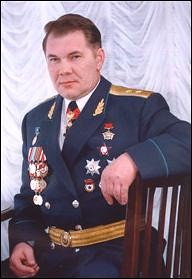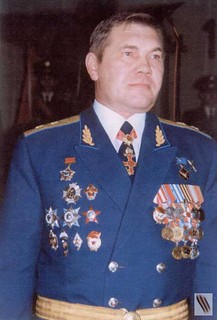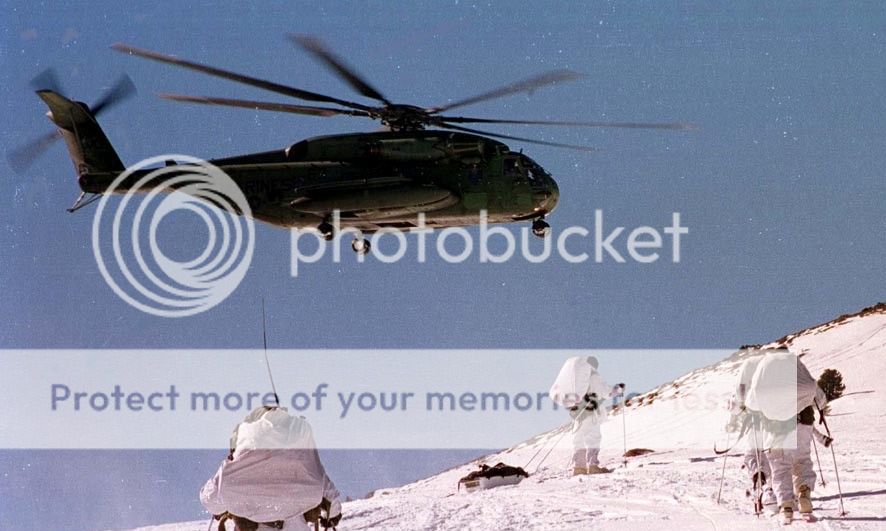PART FORTY EIGHT: BLACK NOVEMBER
PART FORTY EIGHT: BLACK NOVEMBER
Well, we now see what this “invasion of Russia” really looks like, and how this Constitutional Crisis is beginning to play out. Some new names in this update:
Abkhazia is now coming into play:
http://en.wikipedia.org/wiki/Abkhazia
The CH-53 Sea Stallion
http://en.wikipedia.org/wiki/CH-53
The Georgian Special Forces/White Eagles:
http://en.wikipedia.org/wiki/Special_Forces_Brigade_(Georgia)
http://www.unhcr.org/refworld/topic,4565c2254a,4565c25f59f,3ae6ace8b,0,IRBC,,GEO.html
UIS Presidential Candidate Vladimir Putin in an interview with the BBC on August 1, 2011.
Discussing Black November, when the UIS nearly imploded in 1993.
BBC: You famously said that it was by the grace of God that the UIS was able to survive Black November in 1993. With the country paralyzed by an emerging constitutional crisis between the UIS and Russian governments, coupled with the shocking military success of the Chechens and Georgians, how did General Lebed and President Zhirinovsky weather that storm?
Putin: It was difficult, many of the Generals in the 16-man Committee for State Security and Defense were furious with General Lebed. They thought this was proof that his military philosophy was wrong. But ironically, for Lebed, the Georgian invasion of North Ossetia was proof to him that he had in fact been right all along.
BBC: How so? It looked more like he had been badly embarrassed by being the first Marshal to see Russian soil occupied by a foreign power since the Nazis invaded during World War II.
Putin: He believed that the UIS Military needed to upgrade. He believed we needed to create a strong, disciplined army that focused not on brute force and strength of numbers, but on training and professionalism. He felt that the era of throwing hundreds of thousands of Russian soldiers at an enemy was simply not enough.
BBC: So how did Georgia confirm this belief?
Putin: The Georgians outnumbered the Russians when they stormed Tskhinvali, this did not surprise him. He knew that General Tikhomirov had left the South Ossetian capital dangerously vulnerable. But the magnitude of the collapse shocked him. He expected the Russians to hold out for at least a day or two before being overrun. But they were so demoralized by poor leadership they surrendered without firing a shot.
BBC: Is that how the Georgians were able to capture so much territory in the first 48-hours of the conflict?
Putin: It was a big part. But the biggest reason was because of the emerging Constitutional Crisis. We were paralyzed in Moscow because of this power struggle between the federalists and the nationalists. All the while the Georgians were sending in their
White Eagles to terrorize the border towns.
Excerpts from the book “Soldier: The Life of General Colin Powell ”
Written by Catherine Wilcox-Miller
Published by Random House © 2000
Chapter Nine
Although President Kerrey strongly supported Congressman Lazio’s plan to “flood Chechnya and Georgia” with
Dragons, he also remained concerned about the impact of sending too many American weapons to such a volatile region of the UIS.
“President Kerrey knew that sending weapons to Georgia was a dangerous precedent,” former Secretary of State Walter Mondale said, “and could be interpreted as a declaration of war by the increasingly irrational Russian President.”
Although the Dragons and M-16 rifles were officially sold to Turkey as “spare parts”, the Americans knew that the UIS was not buying that story.
“Considering it was one of the biggest campaign issues in the Russian presidential race, we knew that they were not fooled for a second,” commented Mondale, “they knew we were lying when we said that we never had any intention of seeing the weapons in Chechen hands.”
However, as Congressman Lazio began taking a more active role in implementing the Powell Doctrine, he soon began to clamor for even more advanced weaponry to go to the nascent Georgian Army.
“He was assured by his sources that the Georgians would be able to control the skies if a conflict would emerge,” Mondale recalled, “we were not nearly as optimistic.”
Lazio clamored for the United States to send six CH-53
Sea Stallions; assault helicopters that could be used to maximum efficiency in the even of a conflict. As much of northern Georgia was mountainous, transportation was often difficult and Lazio believed that if the Georgians could assure air superiority the
Sea Stallions would prove devastating. However, Mondale and Kerrey balked at the prospect of sending American CH-53s into Georgia.
“That would have been too much,” Mondale said, “its one thing to send a few rifles and anti-tank missile systems to the Georgians, but to start sending helicopters could have triggered World War III.”
Lazio was undeterred, and began recruiting foreign governments who would be willing to act as a straw man for the American government. Few were interested in the risky proposition.
“Even Pakistan was reluctant,” Mondale said, “everyone saw that getting too involved in this new Cold War would bring a lot of unwanted attention from Zhirinovsky and the KGB. They wanted no part of it.”
Lazio exhausted almost all of his options when he received a surprising phone call in the summer of 1993. Not only was this country willing to send CH-53s to Georgia, but they were even willing to provide their own so as not to raise unwanted attention to the Americans. The offer electrified Lazio and the Kerrey administration, who quickly agreed.
By the time Georgia had formally invoked its own version of the Zhirinovsky Act, and nationalized the Georgian Army, six Israeli Ch-53
Sea Stallions were already in Tbilisi and would soon embark on one of the most daring military missions of the twentieth century.
“When Eagles Soared: A Modern History of the Republic of Georgia”
(Routledge Series on Russian and East European Studies) – By Timothy Burnside
Routledge Press, (2005)
CHAPTER SIX
By the summer of 1993 the Georgian military, which had grown increasingly autonomous of President Shevardnadze (who was seen by many Generals as little more than a puppet of Moscow) began to openly prepare for the “liberation of the Georgian Nation.” The military spent much of the summer training for the eventual conflict that they were sure was soon to come.
“The war in Azerbaijan cowed many Georgians into submission,” commented one Georgian politician, “but we also knew that sooner or later an opportunity to be rid of the Russians would emerge, and we needed to be prepared to seize that moment when it arose.”
Colonel Akaki Eliava, who would soon emerge as head-of-state of Georgia after ousting Shevardnadze in a bloodless coup, was enthralled when Israel sent six assault helicopters capable of flying over the high mountains of northern Georgia. He began preparing for a daring operation that even many of his fellow officers considered foolhardy.
“Colonel Eliava knew that if Chechnya erupted in war that it was almost certain that the Russians would send the troops stationed in South Ossetia to Chechnya,” the politician added, “to him, this was when we needed to move. That would be the once in a lifetime moment that the Georgians needed to seize.”
However, as it became clear that Shevardnadze did not share his enthusiasm for independence, he also prepared for the eventual coup that would put him in power.
“Colonel Eliava knew that the Chechen war was the catalyst for everything,” the politician added, “It would be the catalyst for the coup. And for the liberation of South Ossetia. And for Georgian independence.”
The bloodless coup allowed Colonel Eliava to implement the second phase of his plan: the destruction of both the South Ossetian separatist movement and the destruction of the UIS Federal Army in Georgia. However, to his deep disappointment, the UIS did not withdraw troops out of the quasi-autonomous province of Abkhazia.
“He knew we couldn’t take on the 6,500 well armed Russian forces in the west,” an aid to Colonel Eliava recalled, “but he still recognized that there would never be another opportunity like the one before him in South Ossetia.”
Oddly enough, it was this bit of poor luck that proved immensely beneficial to the Georgian military. No longer needing to split their forces for two separate operations, the Georgians were able to launch a concentrated assault on Tskhinvali with devastating results. The 896 Russian troops remaining in South Ossetia were completely shocked when approached by the newly liberated Armed Forces of the Georgian Republic, which outnumbered them 4 to 1. Told that the Georgian Republic had invoked its own version of the Zhirinovsky Act, and that it had (like the Russians) nationalized its army to combat “terrorist separatists,” the UIS Federal Troops quickly surrendered without firing a shot.
“Although it seems strange in hindsight, what they were doing was technically legal,” A former federal solider who surrendered recalled, “thanks to the Zhirinovsky Act being passed in Russia, we all couldn’t argue with what they were doing. Russia had set the precedent: A republic could nationalize its military and fight a war with separatists if they so wanted. We had to go.”
Rather than have the Russians withdraw, Colonel Eliava took them into custody with the intent of sending them to Tbilisi, where they were promised a one way plane ticket back to Russia. None of the federal troops argued with the offer, and with the surrender the Georgian commander recognized that he now had a clear path north. He now could destroy the one thing that stood in his way of total victory: the Roki Tunnel.
“Veteran of the Georgian War of Independence recalls the heroic Operation Ice Storm”
Der Spiegel
August 25, 2000
Interviewer’s notes:
Der Spiegel interview with Captain Zurab Khanishvili of the Georgian White Eagle’s Special Forces Unit.
DS:
Operation Ice Storm is widely seen as the greatest military operation in modern Georgian history, and is widely celebrated in the Georgian community here in Germany as a national holiday. What does
Operation Ice Storm mean to you?
Khanishvili: It was a daring operation. That much is true. But we knew that we needed to succeed. We could not afford to let the Roki Tunnel remain operational and to allow the Russians to take it from us. At the time we didn’t care if we lived or died, we just wanted to keep the Russians from taking that tunnel before we were done destroying it.
DS: Didn’t it frighten you that you were invading Russia? The country that had occupied Georgia for decades! You were about to do the unthinkable!
Khanishvili: To be honest, we didn’t think of it as an invasion, although that’s how the western media portrayed it after the fact. But we saw it as a military operation. We would go in, seize the town and create a perimeter around the tunnel so that our troops in the south could blow it to hell.
DS: What was the most frightening thing about the operation?
Khanishvili: I suppose the flight up to Nar. Colonel Eliava and the other Generals had spent almost all of 1993 training the Georgian Special Forces-
DS:
The White Eagles
Khanishvili: Yes. We were highly trained, and prepared for this operation. We had seen some action in South Ossetia and Abkhazia, but it was in 1993 that we really emerged. We became a world class fighting force that summer and we were supremely confident in the operation. Just not the flight.
DS: What do you mean?
Khanishvili: We flew over to Nar in six Israeli helicopters. We didn’t know anything about them, other then these were the same helicopters that the Americans were flying in Iran when the tried to rescue the hostages at the embassy in 1979. The same helicopters that crashed in the middle of the desert. We were going to fly these helicopters over 3,000 meters high, over the Caucasus Mountains in the middle of the night! And the pilots had only two months training! We also expected that the Russian would shoot us down immediately. An American made helicopter flying into Russia. I am sometimes surprised we didn’t trigger a nuclear war.
DS: Once it became clear that you made it into Russian airspace what did you expect from Nar?
Khanishvili: I was worried about triggering a gun fight. There were four helicopters with forty White Eagles on each of the helicopters. Basically one hundred and sixty of us to seize a town of eight hundred and hold it long enough to load several tons of dynamite into the Roki Tunnel. Well, thanks to Vladimir Zhirinovsky, we figured at least half of the villagers would be armed. Fortunately we were wrong.
DS: How did they respond to your arrival?
Khanishvili: How do you think? They were angry, but fortunately for us the Ossetians are cowards by nature. They did nothing but hide under their beds.
DS: Did you expect the Russian military to confront you.
Khanishvili: At first we figured we’d be in and out before they had time to respond. The whole operation was supposed to take no more than six hours. But there were problems with the demolition. Destroying a military grade tunnel designed to survive a NATO aerial strike is not an easy task. We waited, taking positions on the road just south of town, praying and hoping that we would get the call that we could withdraw. But after we had been there for over twelve hours we starting thinking that we had pushed our luck. That the Russians were en route and there was no way this was not going to end in a firefight. At that point we changed our thinking, focusing on the battle ahead.
DS: Were you surprised the Russians never came?
Khanishvili: At the time I was. But once we got back and we saw what was happening in Moscow we realized they were in no condition to do anything. The Marshal of the UIS, General Lebed, had just been fired from his position and nobody knew who was in charge of what. The whole country was in a complete state of chaos. The federalists were demanding to restore federal control of the military, calling the Zhirinovsky Act unconstitutional, but the Russian nationalists were refusing to surrender control of military operations in Chechnya.
DS: Did you think that was the end of the UIS?
Khanishvili: To be honest, I did. Nobody was willing to take the initiative and move against our position because they didn’t know who was in charge. The call it Black November in Russia now, and for good reason. It was the closest the UIS ever came to falling apart.
Georgian White Eagles prepare to withdraw from the Russian occupied town of Nar after 16-hours












